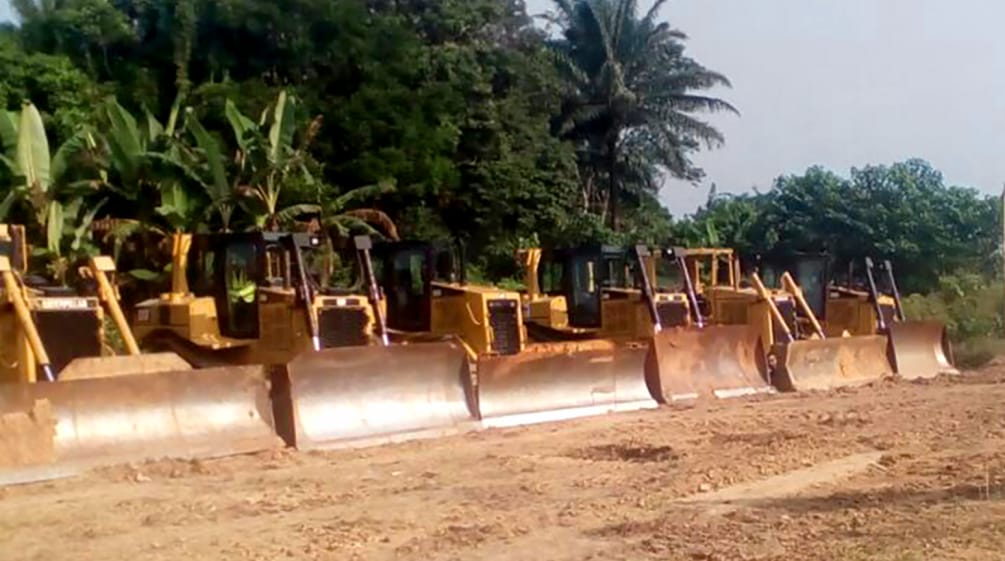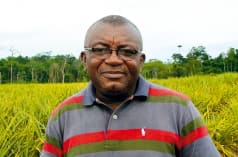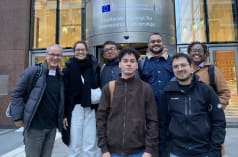Nigeria: paying for a forest “superhighway” for the next 180 years?
 Environmental activists have stopped the bulldozers time and again. (© Odey Oyama)
Environmental activists have stopped the bulldozers time and again. (© Odey Oyama)
Apr 16, 2019
€740,000 a month – for the next 180 years? That’s the princely compensation that the governor of Nigeria’s Cross River State has in mind for the construction company slated to build his pet project, a “superhighway” to nowhere. If that doesn’t smell fishy, nothing does.
For several years, Cross River Governor Ben Ayade has been going to great lengths to push through his potentially devastating pet project: a “superhighway” that would destroy irreplaceable rainforest, including the habitat of endangered gorillas, chimpanzees and forest elephants. Originally, the route of the highway was supposed to go right through the middle of Cross River National Park. Critics of the project assert that the governor is not really interested in building infrastructure, but simply wants to exploit the forest and its resources.
So far, Ayade has not been able to do much damage because environmental activists, villagers and the indigenous Ekuri people – with support from Rainforest Rescue – have been able to stop the bulldozers time and again.
Now, Ayade is making a particularly shameless move: the governor is reported to have approached the House of Assembly of the state to endorse his request for an irrevocable standing payment order for the “superhighway” project to Messrs. Sydney Construction Nigeria Limited – over the equivalent of €740,000 per month for the next 180 years! To date, Messrs. Sydney have not been been active as a road construction company. By the look of it, this is simply a scheme to siphon off public money, and the company may never actually build the road.
Apart from the odd circumstances of its financing, the construction of the road would be illegal in its present form for environmental reasons. Nigeria’s Ministry of the Environment had attached 23 conditions to the environmental impact assessment. These have not yet been fulfilled.
Nigerian environmental activists have been tenaciously resisting the “superhighway”: please support them by signing our petition against the project and donating generously.











